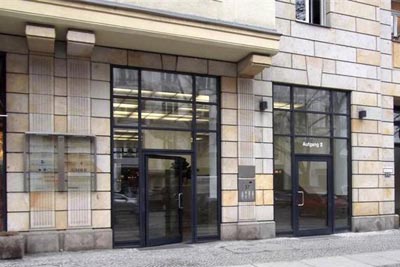How To Start A Business In Germany
How to open a company in Germany?
As in any other country, setting up a business in Germany involves assessments and decisions regarding legal form, obtaining a German VAT number, taxation and available funding.
It is important to note that the choice of legal form must be carefully considered.
It is important to avoid the temptation to choose the least burdensome “guise”, and it is therefore advisable to consider a number of exogenous factors before incorporating a company in Germany.
In this article, we will give you a broad overview to use as a springboard for your new business venture on German soil.
Major economic centers of Germany
As in any other EU country, it is necessary to start by choosing the location and geographical position of your business.
Obviously, in order to have a better chance of generating revenue and satisfying the tastes and preferences of demand, it is important to choose the best, wealthiest and most prosperous business centres in Germany.
Here is a ranking of the most promising and thriving top German cities to consider before setting up your business in Germany.
Munich
Munich maintains its position at the top of the rankings, with many major companies based here, including the famous car manufacturer BMW. Munich’s good infrastructure and high standard of living have always set it apart from other German cities.
Wolfsburg
Although not one of Germany’s most scenic cities, Wolfsburg is a ‘nerve centre’ and an important centre for automobile production. The city has a population of 124,000 and is home to the headquarters of Volkswagen. The vastness of the metropolitan area and Wolfsburg’s thriving economy generate induced industries.
Ingolstadt
Like Wolfsburg, the Bavarian city of Ingolstadt is home to the headquarters of a well-known car manufacturer: Audi. Ingolstadt’s economy is strong and the city has experienced steady growth in recent years. Unemployment is low and salaries are high: an employee working for a company in Ingolstadt can earn up to 50,000 euros a year.
Stuttgart
The city owes its success to its ‘innovative’ spirit: with more than 1,300 patents per 100,000 inhabitants, Stuttgart is the most creative city in Germany. Its economy has grown strongly in recent years and it is home to car manufacturers Mercedes and Porsche, as well as engineering and electronics giant Bosch.
Regensburg
This Bavarian city on the Danube boasts a thriving club scene that generates an average GDP per capita of around €75,000. It also has an excellent transport infrastructure, with the nearest motorway just three minutes away.
Berlin
Berlin has always been a tourist attraction, but in recent years it has been catching up economically: the Internet and ICT sectors are flourishing and adding value to the companies that are being set up every year. Compared to other eastern German cities, Berlin’s population is growing steadily.
Frankfurt am Main
A banking centre and real estate hotspot, Frankfurt am Main is increasingly favoured by young people looking to find a job or start a business. With a GDP of €80,000 per capita, Frankfurt is the third most productive city in Germany.
Leipzig
Apart from Berlin, Leipzig is the only truly promising city in eastern Germany for a young person looking to find a job or start a business. Its low rents, multi-ethnicity, open-minded population and job opportunities make it an attractive and successful choice. Three large companies – Porsche, BMW and DHL – have moved to Leipzig in recent years, creating induced employment (+20 per cent).
Types of companies in Germany
In addition to sole proprietorships, the German legal system offers several alternative solutions for those wishing to conduct business in a collective form: partnerships or corporations.
Partnerships in Germany
If you want to set up a partnership in Germany, German commercial law gives you the option of choosing between these legal forms:
- Gesellschaft bürgerlichen Rechts (GbR) or “Gesellschaft bürgerlichen Rechts” or “simple partnership”. This is a “free” form of company that can be formed verbally, without the need for any formalisation or minimum share capital. The GbR is the appropriate legal entity for individual entrepreneurs who wish to contribute their labour and jointly carry out a business activity aimed at achieving a predetermined purpose. Each partner who decides to form a GbR is autonomous and free to decide what to do and how to do it. No one prohibits the formalisation of the content of the agreements between the partners. The liability of the partners for the obligations entered into is unlimited and extends to their personal assets;
- Offene Handelsgesellschaft – oHG (general partnership);
- Kommanditgesellschaft – KG (limited partnership), in particular GmbH & Co. KG: the limited partners are liable for the company’s obligations only to the extent of the capital they have contributed. The general partner is a limited liability company (GmbH). The unlimited liability of the general partner is de facto (and de jure) limited to the scope of the GmbH. This legal form is suitable for all family businesses.
Corporations in Germany
In addition to partnerships, entrepreneurs can opt for corporations, which are ideal for all partners who wish to limit their liability.
Taxation “hits” the profits generated by the company, and the administrative and fiscal obligations are greater: registration in the commercial register and in the trade register (Gewerbe-/Ordungsamt), notification to the Chamber of Commerce and Industry (IHKs) or the Chamber of Crafts (Handwerkskammern).
Once the registration has been completed, a notification must be sent to the tax office to open the corporation tax position.
Here are the types of companies
- Società a responsabilità limitata (Gesellschaft mit beschränkter Haftung – GmbH);
- Società per azioni (Aktiengesellschaft – AG).
Those who decide to open a German company by opting for the legal forms of SRL or SPA must make a maximum economic commitment.
The minimum mandatory share capital is €25,000 for the GmbH and €50,000 for the AG. In line with Italian company law, it is also possible to set up a “mini GmbH”: a special form of GmbH that can also be set up with a minimum capital of 1 euro.
The simplifications in terms of administrative, tax, procedural and incorporation costs are very advantageous.
How to open a German VAT number
For about a decade, the identification number or IdNr has been the identification code delivered to individuals: consisting of 11 digits, it will replace the old tax number (required for freelancers). To date, both codes have legal value.
Germany is following the example of many EU countries: with the introduction of the tax identification number (IdNr), the Federal Ministry of Finance and the Federal Government want to simplify the tax procedure and reduce bureaucracy.
For the first time, the IdNr makes it possible to allocate tax bases across state borders.
In order to apply for it, it is necessary to register with the German registry office, which will arrange for the number to be sent to the address provided two weeks after the application for residency has been completed.
Anyone starting a business must obtain a VAT identification number, which begins with DE and consists of 9 digits. A VAT number is indispensable within the territory of the European Union in order to carry out intra-Community trade in goods and services for VAT purposes.
Therefore, it is required of all entrepreneurs involved in the exchange of goods and services within the territory of the EU.
A transaction is exempt from VAT if the delivery item arrives in another EU member state and if the delivery is made to an entrepreneur for business purposes. The entrepreneurial status of the recipient can be verified by having a German VAT registration number.
The opening of a VAT number in Germany can be done
- Online: the Federal Tax Office provides an appropriate form through the Federal Form Management System ( FMS );
- on paper
The application must contain the following information:
- Name and address of the applicant,
- Tax office in which the company is operated,
- Tax code under which the company operates.
How to open a company in Germany
The process of opening a company in Germany requires a number of bureaucratic steps to perfect the transaction: all companies must register with the local court (Amtsgericht) and report all cross-border investment flows to the central bank (Bundesbank).
To open a company, a declaration of commencement of business must be filed with the relevant municipal administration.
Once all the necessary licenses have been obtained, German companies must obtain a VAT number and register with the Chamber of Commerce in the area where the company is located. In addition, it is necessary to regulate the social security and insurance positions of all employees and collaborators.
Irrespective of the legal form, all companies are required to report changes during the company’s life to the Commercial Register, which collects certain information: company name, VAT number, share capital and number of shares, changes to the articles of association, etc.
The Ministry of Justice of the Federal State of North Rhine-Westphalia operates the German Business Register Portal, which provides electronic access to all federal registers.
Taxes and Financing for Entrepreneurs in Germany
Effective January 1, 2007, Germany increased VAT from 16% to 19%. There is a reduced rate of 7% for some goods (basic necessities, food, newspapers, books, etc.). Two rates are applied in the primary sector:
- VAT 5.5% applicable to the supply of agricultural and forestry products (excluding sawmill products),
- VAT 10.7 percent applicable to agricultural products containing raw wood.
The VAT paid on purchases is called input tax and can be deducted from the tax liability. For example, if a businessman (trader) has a turnover of 5,000 euros in August, the VAT of 19 percent payable to the treasury is 950 euros.
If the tax on purchases made by the same trader amounts to 300 euros, the actual tax to be paid to the Treasury is 650 euros. The VAT declaration must be made electronically on the appropriate form within the first 10 days of the following month.
The small businessman is comparable to a private individual: he does not pay VAT, which cannot be shown separately on the invoice, and he cannot obtain a refund of input tax from the tax administration.
In addition, individuals pay income tax: the applicable rates range from 15 percent to a maximum of 45 percent, plus an additional solidarity tax of 5.5 percent on the IRPEF.
The higher the profit, the higher the tax burden. Legal entities pay corporate income tax at a rate of 15 percent plus solidarity tax (5.5 percent on the IRES amount). Legal entities are required to make four advance payments, the amount of which is determined by the tax administration based on the (presumed) liability, followed by an adjustment at the end of the fiscal year.
Trade tax (tax on commercial, industrial and craft activities) is calculated on the annual income of the company. Similar to the “Italian” IRAP, it must be paid in quarterly advances and the rate is set by municipal regulations. It generally ranges from 11 to 17 percent.
In terms of business financing, Germany is one of the most virtuous countries in terms of financial support for start-ups. Deutsche Kreditbank, for example, offers transparent business loans with very attractive interest rates compared to its competitors.
In addition to the banking channel, financiers and credit brokers, a start-up entrepreneur can benefit from the funding calls published by local chambers of commerce.
Get Expert Advice
+49 30 40561657
[email protected]
LSI Berlin Law Firm
Schlüterstrasse 37, 10629 Berlin
+49 (0)30 40561657
Monday-Friday: 09:00 – 18:00
Request an appointment and visit us in our office.

